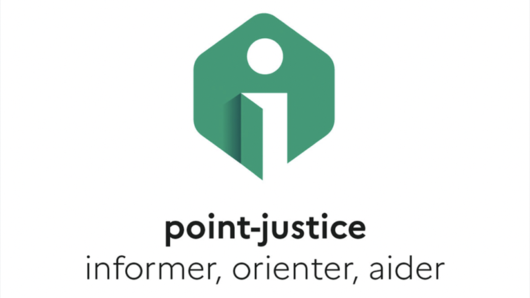Justice in Europe
You live in France and want to know more about its legal system? If all your attempts at amicable resolution have failed, justice might be your last resort. Before you go to court in France, make sure you are informed about lawyer fees, court proceedings and fees. And if you have a dispute with a trader based in another EU country (with the exception of Denmark), two European procedures allow you to take legal action while limiting the costs.

Information on legal action in France
Any French resident can get personal legal help at the so-called “point-justice”. These point-justice centres are free, confidential and local facilities. They provide information on rights and obligations to people with legal problems or questions. They also offer guidance. The centres are dedicated to providing access to the law and are located all across France. They may be general or specialised.

Depending on where you live, you can find the nearest “point-justice” by entering your town’s name or postcode.
Point-justice centres are open to everyone who wishes to obtain information or help on a legal matter. At the centre, you may meet legal professionals, associations, court conciliators, etc.
You can also call the number 3039. It is a free, anonymous number that allows you to:
- Obtain information or help with legal procedures.
- Make an appointment with a legal professional.
- Find out the address of your nearest point-justice.
- If you have a case registered with a French court, obtain the contact details of the court's service for litigants.
Information on the French legal system
If you would like to know more about the legal system in France, the website e-justice.europa.eu provides an overview of the French judicial organisation.
On the same website, you may find out more about the national specialised courts such as the Constitutional Council and the administrative courts, as well as the national ordinary courts.
European judicial simplified procedures
The European Union hast created two judicial procedures to give consumers easier access to justice. You can benefit from them:
- If you are a European citizen and want to claim against a French party.
- Or if you are a French citizen and want to claim against another EU party.
European Small Claims Procedure (ESCP)
The European Small Claims Procedure constitutes an alternative for litigants to the procedures existing in their Member States. It is a relatively fast and inexpensive way to make a cross-border claim, resulting from civil and commercial disputes, of up to 5 000 euros. Any other Member State must recognise a judgment given in the ESCP. There is no need for a declaration of enforceability and no possibility of opposing its recognition.
This Council Regulation 861/2007 applies between all Member States of the European Union with the exception of Denmark.
The Small Claims procedure operates on the basis of standard forms available online (in all EU languages). It is a written procedure unless the court considers that an oral hearing is necessary.
A several-step procedure
To file a claim, the claimant fills in a standard claim form (Form A), giving details of the claim. He lodges it with the competent court. Once the court has received the properly filled-in claim form, it prepares a standard answer form (Form C, Annex III). If the claimant has not provided enough information, the court will send him a Form B (Annex II), asking for the missing information. Otherwise, the court sends the Form C together with Form A and, where applicable, the supporting documents, to the defendant by post with dated acknowledgement of receipt within 14 days. The defendant then has 30 days to prepare and return his response. Within 14 days of receiving the defendant's response, the court forwards a copy of it to the claimant, with any relevant supporting documents.
Within 30 days of receiving the defendant's answer (if any) the court must either give judgment on the small claim. Alternatively, the court can request further details in writing from either party, or summon the parties to an oral hearing. In case of an oral hearing, the representation by a lawyer is not necessary.
With the form D, the certificate containing the judicial decision, and a copy of the judgment, the judgment is enforceable in all the other Member States of the European Union, without any further formalities. The judicial decision might need a translation into the language of the other Member State. The only reason that enforcement in another Member State can be refused is if it is irreconcilable with another judgment in the other Member State between the same parties. Enforcement takes place in accordance with the national rules and procedures of the Member State where the judgment is being enforced.
In France, the enforcement of the decision should be done by the bailiffs. France has declared to accept certificates (form D) written in French, English, German, Italian and Spanish.
European Payment Order (EPO)
By creating a European order for payment procedure creditors can recover their uncontested civil and commercial claims according to a uniform procedure that operates on the basis of standard forms. The procedure usually does not require presence before the court. But in special cases this can be necessary. The claimant only has to submit his application, after which the procedure will lead its own life. It does not require any further formalities or intervention on the part of the claimant.
The Council Regulation 1896/2006 of 12 December 2006 applies between all Member States of the European Union with the exception of Denmark.
You can find the 7 forms for applying for a European Payment Order on the European e-Justice Portal (europa.eu).
Funded by the European Union. Views and opinions expressed are however those of the author(s) only and do not necessarily reflect those of the European Union or the European Innovation Council and Small and Medium-sized Enterprises Executive Agency (EISMEA). Neither the European Union nor the granting authority can be held responsible for them.

